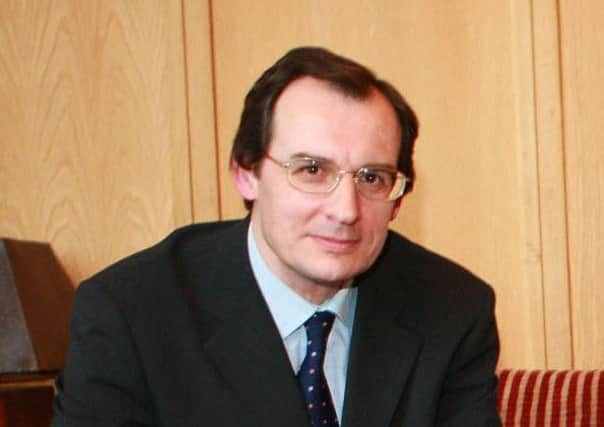Ditch plans to deal with Troubles legacy, urges human rights group that represents victims of terrorism


Ulster Human Rights Watch has warned that thousands of victims will be “denied any meaningful justice” unless the proposed legacy arrangements are “fundamentally changed.”
The proposed arrangements are contained within the draft Stormont House Bill, the result of an agreement reached five years ago after talks between Northern Ireland political parties on a range of issues including flags, parades, welfare reform and devolution reform.
Advertisement
Hide AdAdvertisement
Hide AdBut the legacy proposals have been met with significant opposition from victims of terrorism in the years since 2014.
Ulster Human Rights Watch has now called for the government to “acknowledge the mistake it is making” and “undertake a fundamental review before the process goes any further”.
In a statement, the organisation’s advocacy manager Axel Schmidt said: “These proposals, as they are currently constructed, are totally out of balance.
“This is an issue where you cannot equivocate or be indifferent. There may be a desire in some quarters to be neutral in order to assist the political process, but neutrality on this sensitive issue merely serves to re-traumatise victims.”
Advertisement
Hide AdAdvertisement
Hide AdAxel Schmidt continued: “Ulster Human Rights Watch is calling for what is right and equitable for victims of terrorism and survivors.
“The bomber or gunman, or those who assisted them in carrying out their brutal acts, can in no way be regarded as being in the same category as the people they murdered or maimed or those left bereaved.”
Much of the criticism of the proposed arrangements centres on the definition of ‘victim’, which does not automatically exclude those who may have injured themselves while carrying out an act of terrorism.
Mr Schmidt said an “essential first step” will be to determine “a workable, legal and meaningful definition of a victim and survivor”.
Advertisement
Hide AdAdvertisement
Hide AdInnocent Victims United, an umbrella organisation representing thousands of victims of the Troubles, is also opposed to the legacy arrangements outlined in the Stormont House Bill.
Spokesman Kenny Donaldson said: “We have consistently advised the UK government and local political parties that if they pursue the legacy proposals as they are currently constructed within the draft Stormont House Bill that they are going so without the consent of the majority of innocent victims and survivors of terrorism.
“Just so the Northern Ireland Office are crystal clear, you must abandon your current flawed path which does not have endorsement from the very people you claim to have concern for.”
He also urged political parties who “share a common position on the necessity to stand by innocent victims” to “urgently get around the table and, with honour and humility, develop a cohesive policy position with the support of those you claim to represent”.